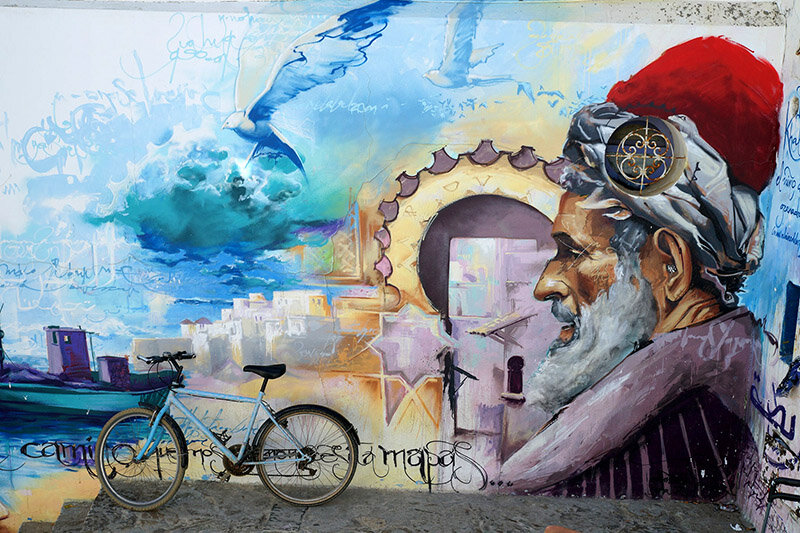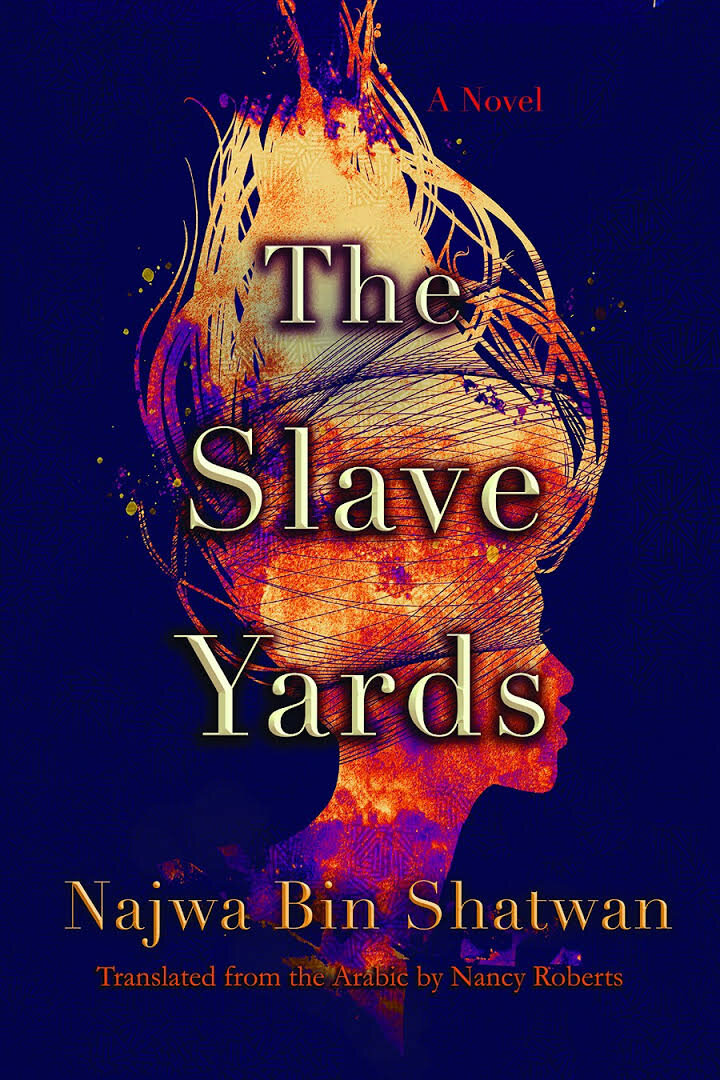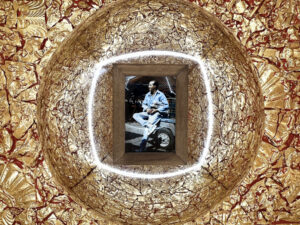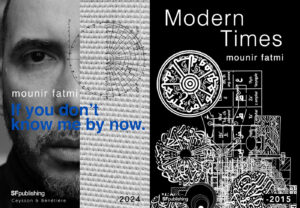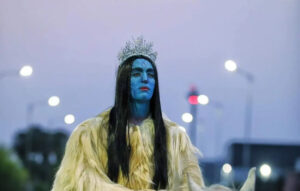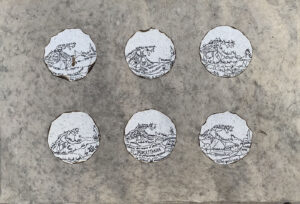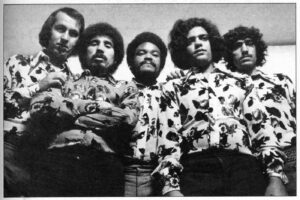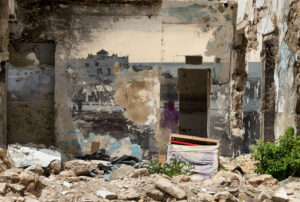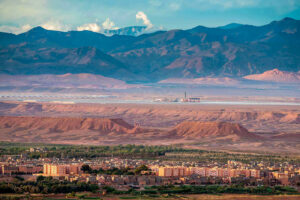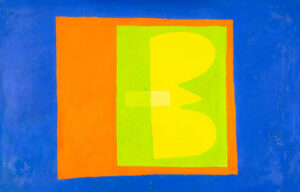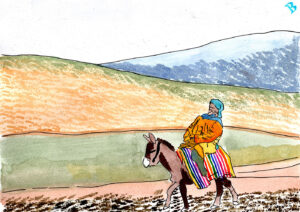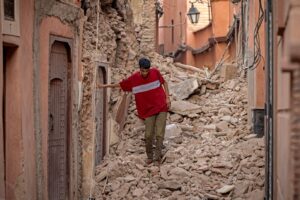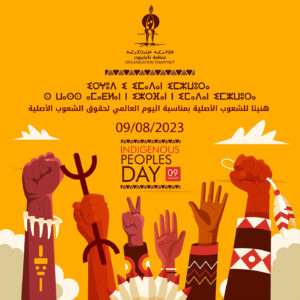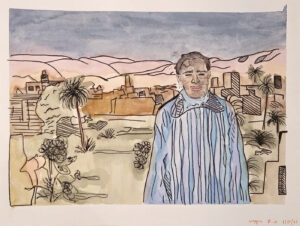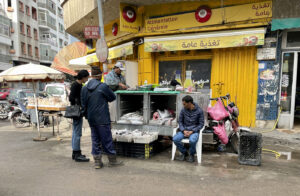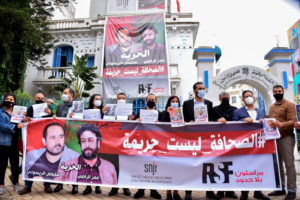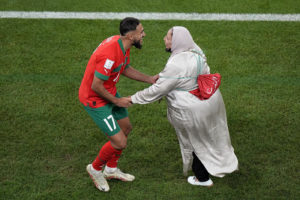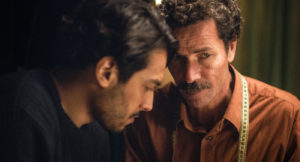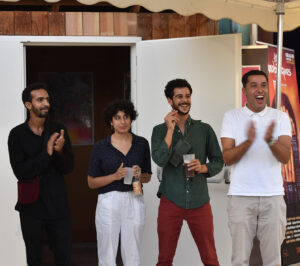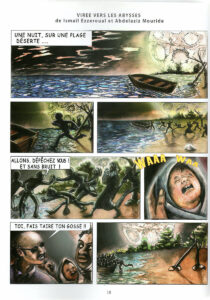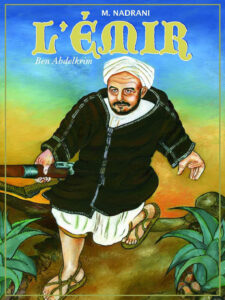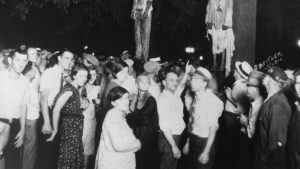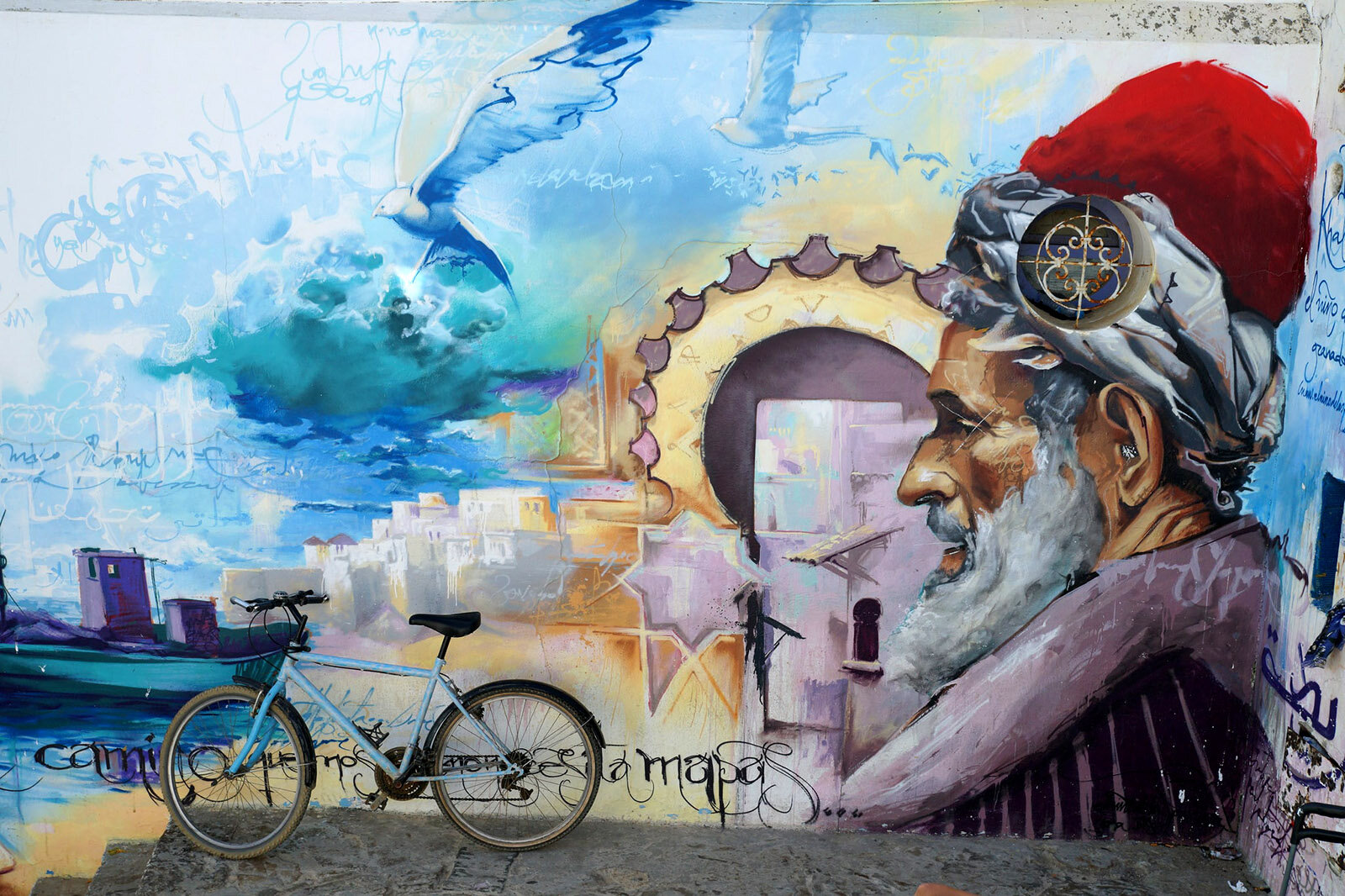
The Slave Yards, a novel by Najwa Bin Shatwan
Translated from the Arabic by Nancy Roberts
Syracuse University Press (May 2020)
ISBN 9780815611257
Rana Asfour
The Slave Yards is an unforgettable story.
This historical novel is set in late 19th-century Benghazi and probes the city’s entanglement with slavery during the Ottoman rule, just before its official abolishment by Italian colonialists. Shortlisted for the 2017 International Prize for Arabic Fiction, The Slave Yards follows the epic love story of two star-crossed lovers, Tawida, a Black African slave, and her white Libyan master, Mohammad, playing against a backdrop of a savagery and inhumanity that came to mark a dark chapter of Libyan history — one which remains sorely under-examined to this day.
The story is narrated by Atiqa, Tawida’s daughter who we meet as a grown woman. She is free and married with children to a man she loves, and works as a doctor’s assistant at a Benghazi clinic, where she receives an unexpected visit from Ali Bin Shatwan, a cousin she’s never met, who will finally lay to rest the ambiguity of her biracial ancestry. Through his story and hers, readers are transported to Atiqa’s childhood in the “slave yards,” a miserable pen-like makeshift encampment along Benghazi’s coast, housing the city’s current and former slaves. There, Atiqa lives with her black aunty Sabriya and Miftah, a fair skinned, blued-eyed orphan. As the novel reaches further into the past, the tragic details of the illicit love affair between Atiqa’s parents are revealed, as well as Sabriya and Miftah’s true identities. In the process, readers are treated to a vivid education in the time’s social traditions, rituals, superstitions, and culture including attire, foods and music.
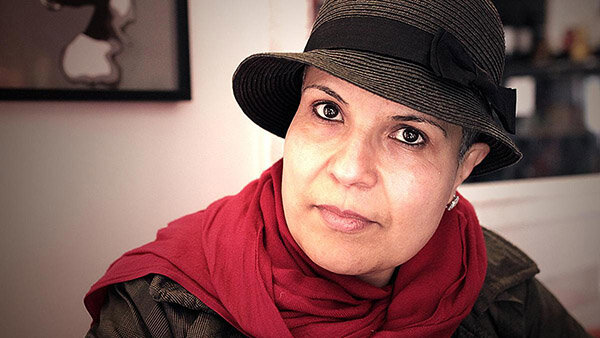
The book is most memorable for its visceral descriptions of the Libyan caravans transporting the African slaves to be auctioned at Benghazi’s market, the insufferable conditions of the slaves as “rightful possessions” within Islamic society as well as highlighting Libyan society’s general discrimination, racism and injustice towards emancipated slaves, towards women, and towards minorities. Throughout, it is Shatwan’s incredibly measured prose, mirrored by Nancy Roberts’s accomplished translation that renders this capturing of a painful time and place both nuanced and compassionate.
In a 2017 video interview, Najwa Bin Shatwan said she viewed The Slave Yards not as “the story of one particular character or a group of characters. It is the story of an entire society, the story of all Libyans. I believe that here lies the true chronicle of the Libyan character or identity when the city was divided into two separate communities: for whites and blacks; for overlords and slaves…The world does not forget its history with racism or with slavery. Legislations can abolish, but never completely wipe away everything.”
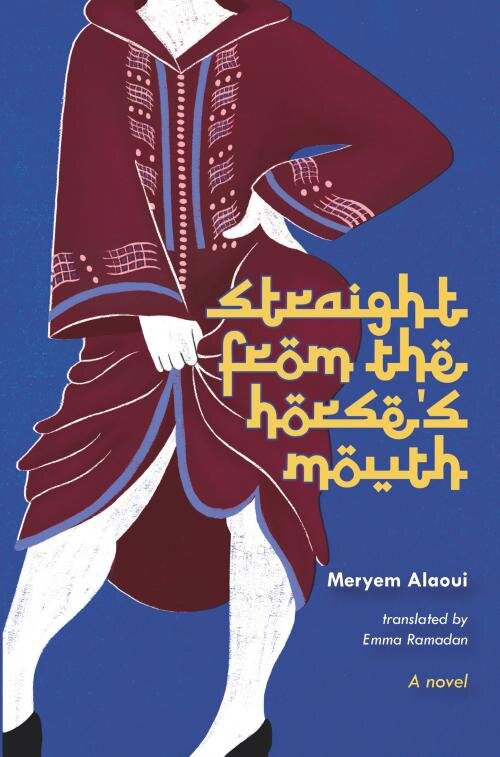
Bin Shatwan is a Libyan academic and writer; in addition to her three novels, including The Horses’ Hair and Orange Content, she is the author of several short story collections and plays. She was chosen as one of the 39 best Arab authors under the age of forty by the Beirut39 project of the Hay Festival. She completed her PhD in humanities at La Sapienza University in Rome, where her doctoral research focused on the slave trade in Libya and the repercussions on Libyan society.
Straight from the Horse’s Mouth, a novel by Meryem Alaoui
Translated by Emma Ramadan
Other Press (Sept 2020)
ISBN 9781892746795
By turns startling and bitingly funny, Meryem Alaoui’s entertaining debut novel paints a colorful portrait of sex workers’ daily existence in modern day Casablanca. 34-year-old Jmiaa is sassy, curvy, quick-witted, pragmatic & brutally honest. Pimped by a deadbeat husband who later abandons her and their young daughter to cross illegally into Spain, she is left with no recourse but to continue what he started since like many women in her neighborhood, she needs to earn enough money to support herself and her family, including her conservative mother in the village who is led to believe that Jmiaa works as a “respectable” cleaning lady.
Jmiaa’s routine consists of servicing clients, drinking, smoking and brawling with (and in defense of) her girlfriends, while dishing out a 101 crash course in sex work etiquette to the newer girls. This is interrupted when aspiring director, Chadlia, whom Jmiaa labels “Horse Mouth” — on account of her toothy grin — lands in Casablanca from the Netherlands with plans for a film project. By a twist of fate, Jmiaa is offered the lead role — an opportunity that turns her life upside down, taking her on a surprising path.

A rags-to-riches diary-style comedy that is propelled forward first and foremost by Jmiaa’s comedic run of the mouth quips that range from describing herself as “a human sized cake filled with cream” to her first impressions of Americans as “a bit stupid” to rationalizing her debilitating drink problem and pill popping habits as harmless recreations and men as what women, like her, have to get to live.
The other thing going for this novel is its abundant cast of quirky memorable characters that range from the scar-riddled yet compassionate pimp Houcine, to the Quran-touting prostitute Halima, Rabia of the good instincts, on and off boyfriend Chaiiba (of the ever-expanding girth), best friend Samira in love with a cop who beats her, and Danish director Chadlia, whom the Moroccan street police treat with deference and respect in vast contrast to their usual handling of the neighborhood dwellers.
Straight from the Horse’s Mouth offers a lively take on Casablanca as a heady mix of religions, traditions, superstitions and modern sensibilities. While the rags-to riches aspect has been done before ad nauseum, Alaoui’s use of the trope here comes as more of a surprise. And as her translator, Emma Ramadan, pointed out, the novel is “about Morocco, but not the cliched version of Morocco that can get neatly packaged to American readers.” The attuned reader will appreciate that Straight From the Horse’s Mouth reveals the fragility and harshness that imbues a segment of Moroccan society usually ostracized and rarely talked about and hardly ever listened to. By the way, although prostitution in Morocco has been illegal since the 1970s, in 2015 the Moroccan Health Ministry estimated there were 50,000 sex workers in the country. UNAIDS estimated the figure at 75,000 in 2016.
Meryem Alaoui was born and raised in Morocco, where she managed an independent media group that combined publications in French (TelQuel) and Arabic (Nichane). Straight from the Horse’s Mouth, her debut novel, was first published in France, where it has achieved great critical acclaim. After several years in New York, Alaoui now lives in Morocco.
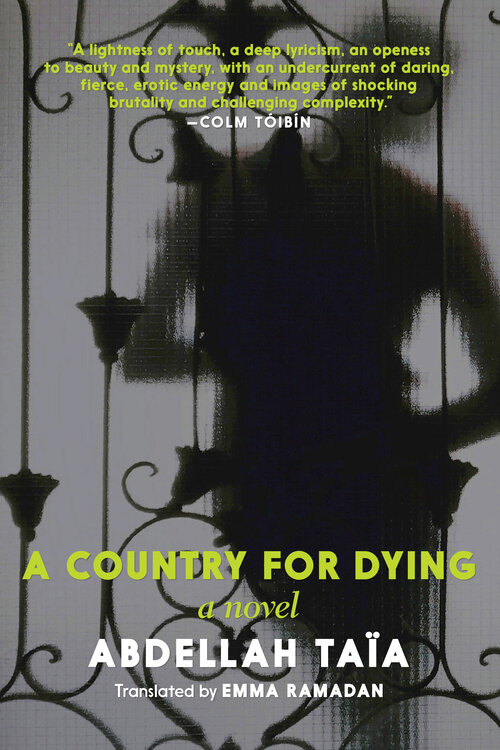
A Country for Dying, a novel by Abdellah Taïa
Translated by Emma Ramadan
Seven Stories Press (Sept 2020)
ISBN: 9781609809904
Aptly described, I believe, by novelist Viet Thanh Nguyen (author of the bestselling lit thrillers The Sympathizer and The Committed) as “a knife of a novel that exposes how colonization has shaped sexual desire, expression and exploitation,” A Country for Dying is set in Paris, in the summer of 2010. Zahira, a Moroccan prostitute, is in love with a man who no longer loves her. Zahira’s friend Zannouba — formerly Aziz — prepares for gender confirmation surgery and reflects on the recurring trauma of loss, including the loss of her pre-transition male persona. Mojtaba is a gay Iranian revolutionary who finds refuge with Zahira. And Allal, Zahira’s first love back in Morocco, travels to Paris to find her.
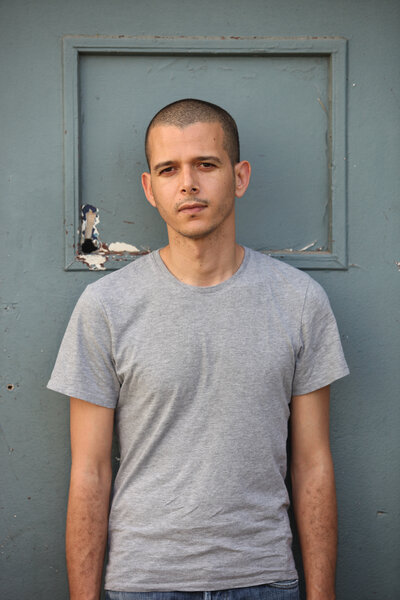
Through swirling, perpendicular narratives, the novel enlivens the inner lives of immigrants as they contend with their realities in the city of dreams, in a schism of a postcolonial world where as Taïa writes, “So many people find themselves in the same situation. It is our destiny: to pay with our bodies for other people’s future.”
Taïa writes in a mesmerizing, lyrical prose coupled with the author’s empathetic handling of delicate — even controversial and taboo — themes. The narrative consistently is nothing short of “an incredible sweetness. A sea of tenderness. Rivers of infinite love.”
Taïa’s own story is no less compelling. He was born in a public library in Rabat, Morocco in 1973, where his father was the janitor and where his family lived until he was two years old. He later migrated to France and found acclaim as both a novelist and filmmaker, choosing to write in French rather than Arabic. His eight books have been widely translated, including Le jour de roi, which was awarded the prestigious French Prix de Flore in 2010. An adaptation of his novel L’Armée du salut was his first feature film, released in 2014, screened at major festivals around the world, and hailed by the New York Times as giving “the Arab world its first on-screen gay protagonist.” Abdellah Taïa made history in 2006 by coming out in Morocco, where homosexuality is still illegal. His commitment to the defense of homosexuals in Muslim countries has made him one of the most prominent Arab writers of his generation—both “a literary transgressor and cultural paragon,” according to Interview magazine. Taia has lived in Paris since 1998.



